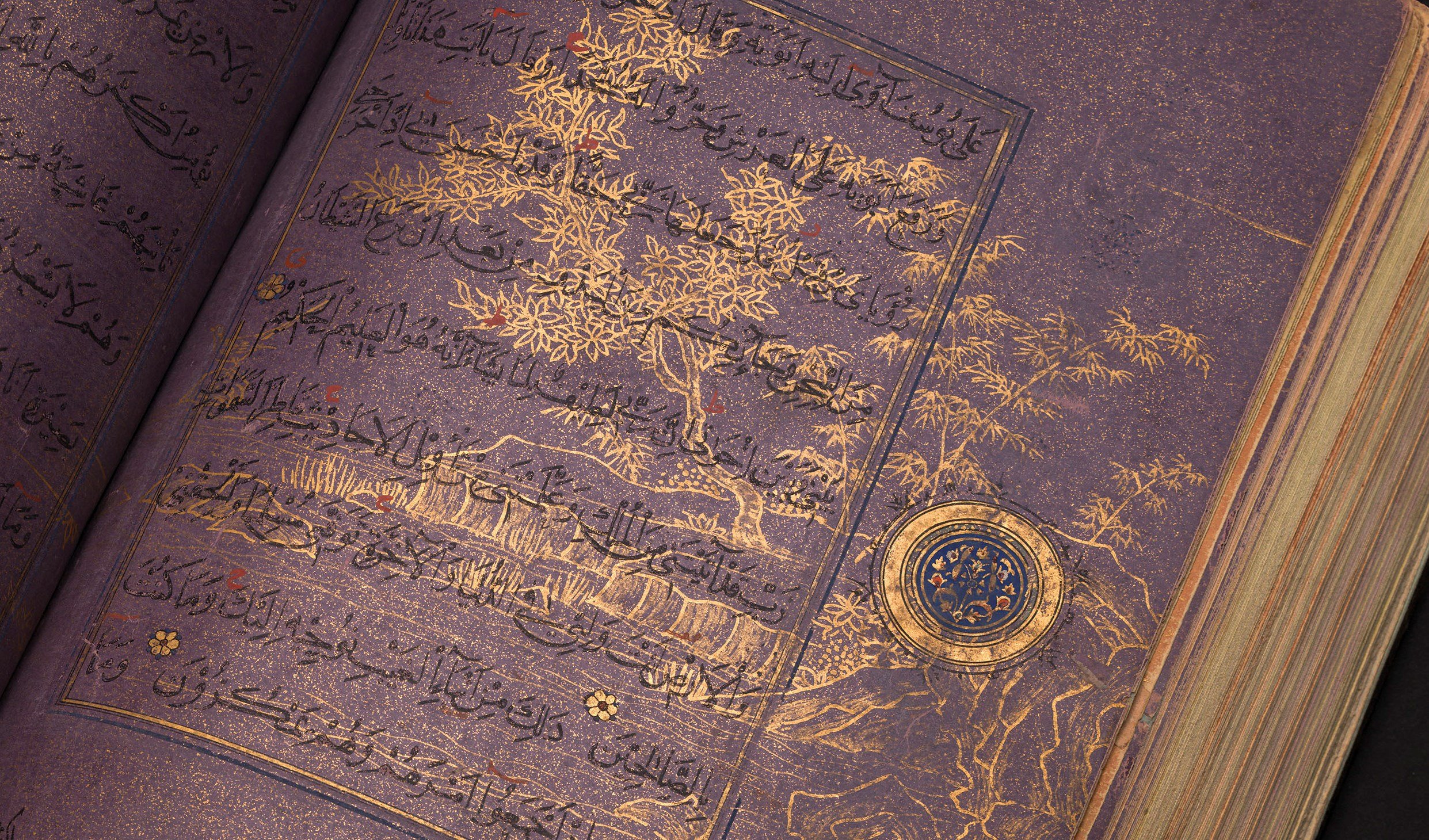Joint efforts end sale of rare Quranic manuscript looted from Kabul
A looted Kabul Quranic manuscript has been identified and its trafficking is stopped by a multitude of organizations who have come together in a joint effort to stop the illicit trafficking of looted and historical objects in hopes of preserving heritage.
-

The 15th century Timurid or Aqquyunlu Qur'an on Chinese Paper (Christie's)
Several illicit trafficking attempts of historical manuscripts stolen from Afghanistan have been stopped through the joint efforts of the Himaya project, the Qatar National Library and the Federation of Library Associations and Institutions (IFLA).
These organizations’ joint efforts stopped the illegal trafficking of manuscripts in West Asia, North Africa, and Central Asia according to an Art Newspaper report.
Over the last few years, the Himaya network has collaborated with Interpol, the World Customs Organization, and a team headquartered at the Qatar National Library in Doha to identify numerous manuscripts that experts believe were looted between 2016 - 2019.
In 2020, through the combined effort of specialists from across the joint organizations, it was found that key Qur'anic manuscripts from Kabul were put up for sale in a number of European capitals, according to Stephane Ipert, the head of special collections at the National Library, who said that “our attention was drawn by a nice manuscript, a rare and beautiful Qur’an, on sale at Sotheby’s London, described as ‘A magnificent and highly rare, illuminated Qur’an Juz’.”
The Quran, identified by prominent Persian manuscript researcher Francis Richard, was scheduled to be auctioned off at Sotheby's last year. Richard, who had previously cataloged the manuscript at Afghanistan's National Archive in Kabul in 2016, informed Ipert about the illicit auctioning.
The group is actively attempting to reclaim the manuscript, however, the National Archive never disclosed the suspected theft, complicating the volume's recovery even more. Furthermore, the exact quantity of stolen manuscripts from the collection, which includes over 6,000 Timurid-era Qurans, is unclear.
Despite the fact that Sotheby's pulled the Quran from the sale, the team claimed to have identified eight more stolen manuscripts in the previous year.
Ipert met with Taliban officials earlier this year in June and July to discuss the safeguarding of these valuable manuscripts, which resulted in the creation of a new online program to train law enforcement personnel in cultural goods trafficking. The program will be accomplished in collaboration with the US charity Arch International. Arch and the National Library are also working together to create a training program for interns at the Kabul National Archive.
Last month, the National Library organized an international gathering of specialists to examine techniques for conserving cultural heritage artifacts in locations like Afghanistan, Libya, and Iraq. It intends to work with the Athar Project next to monitor the unlawful trafficking of manuscripts on social media platforms.
In regards to joint and numerous efforts, Ipert said “Whatever the political situation is, we still need to save the heritage.”
Read more: 3,000-year-old Egyptian artifact from Europe seized in Tennessee

 3 Min Read
3 Min Read








